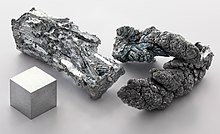সাঁচ:Infobox zinc
 | |||||||||||||||||||||||||||||||||||||||||||||||||||||||||||||||||||||||||||||||||||||||||||||||||||||||||||||||||||||||||||||||||||||||||||||||||||||||||||||||||||||||||||||||||||||||||||||||||||||||||||||||||||||||||||||||||||||
| সাধাৰণ ধৰ্মসমূহ | |||||||||||||||||||||||||||||||||||||||||||||||||||||||||||||||||||||||||||||||||||||||||||||||||||||||||||||||||||||||||||||||||||||||||||||||||||||||||||||||||||||||||||||||||||||||||||||||||||||||||||||||||||||||||||||||||||||
|---|---|---|---|---|---|---|---|---|---|---|---|---|---|---|---|---|---|---|---|---|---|---|---|---|---|---|---|---|---|---|---|---|---|---|---|---|---|---|---|---|---|---|---|---|---|---|---|---|---|---|---|---|---|---|---|---|---|---|---|---|---|---|---|---|---|---|---|---|---|---|---|---|---|---|---|---|---|---|---|---|---|---|---|---|---|---|---|---|---|---|---|---|---|---|---|---|---|---|---|---|---|---|---|---|---|---|---|---|---|---|---|---|---|---|---|---|---|---|---|---|---|---|---|---|---|---|---|---|---|---|---|---|---|---|---|---|---|---|---|---|---|---|---|---|---|---|---|---|---|---|---|---|---|---|---|---|---|---|---|---|---|---|---|---|---|---|---|---|---|---|---|---|---|---|---|---|---|---|---|---|---|---|---|---|---|---|---|---|---|---|---|---|---|---|---|---|---|---|---|---|---|---|---|---|---|---|---|---|---|---|---|---|---|---|---|---|---|---|---|---|---|---|---|---|---|---|---|---|---|
| নাম, সংকেত | জিংক, Zn | ||||||||||||||||||||||||||||||||||||||||||||||||||||||||||||||||||||||||||||||||||||||||||||||||||||||||||||||||||||||||||||||||||||||||||||||||||||||||||||||||||||||||||||||||||||||||||||||||||||||||||||||||||||||||||||||||||||
| Appearance | ৰূপালী-ধূসৰ | ||||||||||||||||||||||||||||||||||||||||||||||||||||||||||||||||||||||||||||||||||||||||||||||||||||||||||||||||||||||||||||||||||||||||||||||||||||||||||||||||||||||||||||||||||||||||||||||||||||||||||||||||||||||||||||||||||||
| উচ্চাৰণ | /ˈzɪŋk/ zingk | ||||||||||||||||||||||||||||||||||||||||||||||||||||||||||||||||||||||||||||||||||||||||||||||||||||||||||||||||||||||||||||||||||||||||||||||||||||||||||||||||||||||||||||||||||||||||||||||||||||||||||||||||||||||||||||||||||||
| পৰ্যাবৃত্ত তালিকাত জিংক | |||||||||||||||||||||||||||||||||||||||||||||||||||||||||||||||||||||||||||||||||||||||||||||||||||||||||||||||||||||||||||||||||||||||||||||||||||||||||||||||||||||||||||||||||||||||||||||||||||||||||||||||||||||||||||||||||||||
| |||||||||||||||||||||||||||||||||||||||||||||||||||||||||||||||||||||||||||||||||||||||||||||||||||||||||||||||||||||||||||||||||||||||||||||||||||||||||||||||||||||||||||||||||||||||||||||||||||||||||||||||||||||||||||||||||||||
| আনৱিক সংখ্যা (Z) | ৩০ | ||||||||||||||||||||||||||||||||||||||||||||||||||||||||||||||||||||||||||||||||||||||||||||||||||||||||||||||||||||||||||||||||||||||||||||||||||||||||||||||||||||||||||||||||||||||||||||||||||||||||||||||||||||||||||||||||||||
| গ্ৰুপ, ব্লক | ১২, d-ব্লক | ||||||||||||||||||||||||||||||||||||||||||||||||||||||||||||||||||||||||||||||||||||||||||||||||||||||||||||||||||||||||||||||||||||||||||||||||||||||||||||||||||||||||||||||||||||||||||||||||||||||||||||||||||||||||||||||||||||
| পৰ্যায় | period 4 | ||||||||||||||||||||||||||||||||||||||||||||||||||||||||||||||||||||||||||||||||||||||||||||||||||||||||||||||||||||||||||||||||||||||||||||||||||||||||||||||||||||||||||||||||||||||||||||||||||||||||||||||||||||||||||||||||||||
| মান আনৱিক ভৰ (±) (Ar) | 65.38(2)[1] | ||||||||||||||||||||||||||||||||||||||||||||||||||||||||||||||||||||||||||||||||||||||||||||||||||||||||||||||||||||||||||||||||||||||||||||||||||||||||||||||||||||||||||||||||||||||||||||||||||||||||||||||||||||||||||||||||||||
| ইলেক্ট্ৰনৰ বিন্যাস | [Ar] ৩d১০ ৪s২ | ||||||||||||||||||||||||||||||||||||||||||||||||||||||||||||||||||||||||||||||||||||||||||||||||||||||||||||||||||||||||||||||||||||||||||||||||||||||||||||||||||||||||||||||||||||||||||||||||||||||||||||||||||||||||||||||||||||
প্ৰতি কক্ষত |
২, ৮, ১৮, ২ | ||||||||||||||||||||||||||||||||||||||||||||||||||||||||||||||||||||||||||||||||||||||||||||||||||||||||||||||||||||||||||||||||||||||||||||||||||||||||||||||||||||||||||||||||||||||||||||||||||||||||||||||||||||||||||||||||||||
| ভৌতিক ধৰ্মসমূহ | |||||||||||||||||||||||||||||||||||||||||||||||||||||||||||||||||||||||||||||||||||||||||||||||||||||||||||||||||||||||||||||||||||||||||||||||||||||||||||||||||||||||||||||||||||||||||||||||||||||||||||||||||||||||||||||||||||||
| দশা | কঠিন | ||||||||||||||||||||||||||||||||||||||||||||||||||||||||||||||||||||||||||||||||||||||||||||||||||||||||||||||||||||||||||||||||||||||||||||||||||||||||||||||||||||||||||||||||||||||||||||||||||||||||||||||||||||||||||||||||||||
| গলনাংক | 692.68 কে (419.53 °ছে, 787.15 °ফা) | ||||||||||||||||||||||||||||||||||||||||||||||||||||||||||||||||||||||||||||||||||||||||||||||||||||||||||||||||||||||||||||||||||||||||||||||||||||||||||||||||||||||||||||||||||||||||||||||||||||||||||||||||||||||||||||||||||||
| উতলাংক | 1180 কে (907 °ছে, 1665 °ফা) | ||||||||||||||||||||||||||||||||||||||||||||||||||||||||||||||||||||||||||||||||||||||||||||||||||||||||||||||||||||||||||||||||||||||||||||||||||||||||||||||||||||||||||||||||||||||||||||||||||||||||||||||||||||||||||||||||||||
| ঘনত্ব কক্ষ তাপমানৰ ওচৰত | 7.14 g/cm3 | ||||||||||||||||||||||||||||||||||||||||||||||||||||||||||||||||||||||||||||||||||||||||||||||||||||||||||||||||||||||||||||||||||||||||||||||||||||||||||||||||||||||||||||||||||||||||||||||||||||||||||||||||||||||||||||||||||||
| জলীয় অৱস্থাত, m.p.ত | 6.57 g/cm3 | ||||||||||||||||||||||||||||||||||||||||||||||||||||||||||||||||||||||||||||||||||||||||||||||||||||||||||||||||||||||||||||||||||||||||||||||||||||||||||||||||||||||||||||||||||||||||||||||||||||||||||||||||||||||||||||||||||||
| Heat of fusion | 7.32 kJ/mol | ||||||||||||||||||||||||||||||||||||||||||||||||||||||||||||||||||||||||||||||||||||||||||||||||||||||||||||||||||||||||||||||||||||||||||||||||||||||||||||||||||||||||||||||||||||||||||||||||||||||||||||||||||||||||||||||||||||
| মৌলৰ তাপ | 115 কি.জুল/ম'ল | ||||||||||||||||||||||||||||||||||||||||||||||||||||||||||||||||||||||||||||||||||||||||||||||||||||||||||||||||||||||||||||||||||||||||||||||||||||||||||||||||||||||||||||||||||||||||||||||||||||||||||||||||||||||||||||||||||||
| Molar heat capacity | 25.470 J/(mol·K) | ||||||||||||||||||||||||||||||||||||||||||||||||||||||||||||||||||||||||||||||||||||||||||||||||||||||||||||||||||||||||||||||||||||||||||||||||||||||||||||||||||||||||||||||||||||||||||||||||||||||||||||||||||||||||||||||||||||
বাস্পীয় চাপ
| |||||||||||||||||||||||||||||||||||||||||||||||||||||||||||||||||||||||||||||||||||||||||||||||||||||||||||||||||||||||||||||||||||||||||||||||||||||||||||||||||||||||||||||||||||||||||||||||||||||||||||||||||||||||||||||||||||||
| আনৱিক ধৰ্মসমূহ | |||||||||||||||||||||||||||||||||||||||||||||||||||||||||||||||||||||||||||||||||||||||||||||||||||||||||||||||||||||||||||||||||||||||||||||||||||||||||||||||||||||||||||||||||||||||||||||||||||||||||||||||||||||||||||||||||||||
| জাৰণ অৱস্থা | -২, ০, +১, +২ (এক এম্ফ'টেৰিক অক্সাইড) | ||||||||||||||||||||||||||||||||||||||||||||||||||||||||||||||||||||||||||||||||||||||||||||||||||||||||||||||||||||||||||||||||||||||||||||||||||||||||||||||||||||||||||||||||||||||||||||||||||||||||||||||||||||||||||||||||||||
| বিদ্যুৎঋণাত্মকতা | Pauling scale: 1.65 | ||||||||||||||||||||||||||||||||||||||||||||||||||||||||||||||||||||||||||||||||||||||||||||||||||||||||||||||||||||||||||||||||||||||||||||||||||||||||||||||||||||||||||||||||||||||||||||||||||||||||||||||||||||||||||||||||||||
| আয়নিভৱন শক্তি | 1st: 906.4 kJ/mol 2nd: 1733.3 kJ/mol 3rd: 3833 kJ/mol (more) | ||||||||||||||||||||||||||||||||||||||||||||||||||||||||||||||||||||||||||||||||||||||||||||||||||||||||||||||||||||||||||||||||||||||||||||||||||||||||||||||||||||||||||||||||||||||||||||||||||||||||||||||||||||||||||||||||||||
| Atomic radius | empirical: 134 pm | ||||||||||||||||||||||||||||||||||||||||||||||||||||||||||||||||||||||||||||||||||||||||||||||||||||||||||||||||||||||||||||||||||||||||||||||||||||||||||||||||||||||||||||||||||||||||||||||||||||||||||||||||||||||||||||||||||||
| Covalent radius | 122±4 pm | ||||||||||||||||||||||||||||||||||||||||||||||||||||||||||||||||||||||||||||||||||||||||||||||||||||||||||||||||||||||||||||||||||||||||||||||||||||||||||||||||||||||||||||||||||||||||||||||||||||||||||||||||||||||||||||||||||||
| Van der Waals radius | 139 pm | ||||||||||||||||||||||||||||||||||||||||||||||||||||||||||||||||||||||||||||||||||||||||||||||||||||||||||||||||||||||||||||||||||||||||||||||||||||||||||||||||||||||||||||||||||||||||||||||||||||||||||||||||||||||||||||||||||||
সাঁচ:Infobox element/element navigation
তথ্যসূত্ৰ
Infoboxes for the chemical elements use the core template {{Infobox element}}.
Parameters
সম্পাদনা কৰক- In general
Usually parameters reproduce the value, and the template adds the SI unit or additional standard text. While the topic is technical, we can strive to make the result readable text, and even verbose. For example, this is why the template writes "(at 0 °C)". For this, you may want to experiment with parameter input too - or propose improvements.
All this can vary across the values (data rows). So depending on the row and the specific value, additional formattings may be added by the template (e.g., a newline <br>)
- Parameter naming patterns
Most parameters have a ... ref that allows for references. This reference is added right after the unit.
ionization energy ref
Parameters with a .. comment suffix are added to the end of a data line, with a space added. Comments are reproduced without formatting additions (no brackets, no italics, ...):
ionization energy comment
Numbered values make a list (except |atomic mass 2= used for uncertainty bracket notation):
ionization energyionization energy 2ionization energy 3
| Parameter list |
|---|
Subtemplates
সম্পাদনা কৰকIsotopes
সম্পাদনা কৰক| Isotopes | ||||||||||||||||||||||||||||||||||||||||||||||||||||||||||||||||||||||||||||||||||||||||||||||||||||||||||||||||||||||||||||||||||||||||||||||||||||||||||||||||||||||||||||||||||||||||||||||||||||||||||||||||||||||||||||||||||||||||||||||||||||||||||
|---|---|---|---|---|---|---|---|---|---|---|---|---|---|---|---|---|---|---|---|---|---|---|---|---|---|---|---|---|---|---|---|---|---|---|---|---|---|---|---|---|---|---|---|---|---|---|---|---|---|---|---|---|---|---|---|---|---|---|---|---|---|---|---|---|---|---|---|---|---|---|---|---|---|---|---|---|---|---|---|---|---|---|---|---|---|---|---|---|---|---|---|---|---|---|---|---|---|---|---|---|---|---|---|---|---|---|---|---|---|---|---|---|---|---|---|---|---|---|---|---|---|---|---|---|---|---|---|---|---|---|---|---|---|---|---|---|---|---|---|---|---|---|---|---|---|---|---|---|---|---|---|---|---|---|---|---|---|---|---|---|---|---|---|---|---|---|---|---|---|---|---|---|---|---|---|---|---|---|---|---|---|---|---|---|---|---|---|---|---|---|---|---|---|---|---|---|---|---|---|---|---|---|---|---|---|---|---|---|---|---|---|---|---|---|---|---|---|---|---|---|---|---|---|---|---|---|---|---|---|---|---|---|---|---|---|---|---|---|---|---|---|---|---|---|---|---|---|---|---|---|
|
Isotopes are to be entered by the editor using these subtemplates:
Examples (from various elements): | isotopes =
{{Infobox element/isotopes stable
| link=Fluorine-19
| mn=19
| sym=F
| na=100%
| n=10
}}
{{Infobox element/isotopes decay
| mn=251
| sym=Cf
| na=trace
| hl=898 y
| dm=α
| de=6.172
| link1=curium-247
| pn=247
| ps=Cm
}}
{{Infobox element/isotopes decay2
| mn=252
| sym=Cf
| na=trace
| hl=2.645 y
| dm1=α (96.91%)
| de1=6.217
| link1=curium-248
| pn1=248
| ps1=Cm
| dm2=SF (3.09%)
| de2=–
| pn2=
| ps2=–
}}
{{Infobox element/isotopes decay3
| mn=26
| sym=Al
| na=[[trace radioisotope|trace]]
| hl=7.17×105 y
| dm1=[[Positron emission|β<sup>+</sup>]]
| de1=1.17
| link1=magnesium-26
| pn1=26
| ps1=Mg
| dm2=[[electron capture|ε]]
| de2=–
| link2=magnesium-26
| pn2=26
| ps2=Mg
| dm3=[[Gamma radiation|γ]]
| de3=1.8086
| pn3=
| ps3=–
}}
{{Infobox element/isotopes decay3 (2 2 1)
| mn=22
| sym=Na
| na=[[trace radioisotope|trace]]
| hl=[[1 E7 s|2.602 y]]
| dm1=[[Beta decay|β<sup>+</sup>]]→[[Gamma decay|γ]]
| de1a=0.5454
| link1a=neon-22
| pn1a=22
| ps1a=Ne*
| de1b=1.27453(2)<ref name=npa521_1>{{cite journal|author=Endt, P. M.
|title=Energy levels of A = 21–44 nuclei (VII)
|journal=Nuclear Physics A
}}</ref>
| pn1b=22
| ps1b=Ne
| dm2=[[electron capture|ε]]→[[Gamma decay|γ]]
| de2a=–
| pn2a=22
| ps2a=Ne*
| de2b=1.27453(2)
| pn2b=22
| ps2b=Ne
| dm3=[[Beta decay|β<sup>+</sup>]]
| de3=1.8200
| pn3=22
| ps3=Ne
}}
{{Infobox element/isotopes_decay4
| mn=260
| sym=Md
| na=[[synthetic radioisotope|syn]]
| hl=31.8 [[day|d]]
| dm1=SF
| de1=–
| pn1=
| ps1=–
| dm2=α
| de2=7.000
| link2=einsteinium-256
| pn2=256
| ps2=Es
| dm3=ε
| de3=–
| link3=fermium-260
| pn3=260
| ps3=Fm
| dm4=[[beta emission|β<sup>−</sup>]]
| de4=1.000
| link4=nobelium-260
| pn4=260
| ps4=No
}}
|isotopes comment=reference{{sfn|Chisté|2006
}}<br/><!-- ---- ---- ---- ---- ---- ---- ---- ---- -->
* = [[excited state]]
produces the subtable:
| ||||||||||||||||||||||||||||||||||||||||||||||||||||||||||||||||||||||||||||||||||||||||||||||||||||||||||||||||||||||||||||||||||||||||||||||||||||||||||||||||||||||||||||||||||||||||||||||||||||||||||||||||||||||||||||||||||||||||||||||||||||||||||
Other
সম্পাদনা কৰকOther subtemplates are used automatically; they do not need specific editor's input.
- {{Periodic table (32 columns, micro)}}
- When atomic number ≥ 119, the miniature periodic table shows an extended version (period 8 and up). See, for example, {{Infobox ununennium}}.
ENGVAR
সম্পাদনা কৰকThe template accepts |engvar=en-GB and |engvar=en-OED for appropriate pages. This way, the template van follow the ENGVAR for that article (vapour). See for example Phosphorus (en-GB).
Note: in no situation should the formal IUPAC name be changed (always aluminium, not aluminum), except when this spelling is the topic.
তথ্যসূত্ৰ
See also
সম্পাদনা কৰক- {{Infobox element}}
- Category:Infobox element templates
- Category:Periodic table infobox templates
- All subpages of Template:Infobox element
- Category:Element infobox templates that need attention
সাঁচ:Index to chemical element infoboxes সাঁচ:When on template page
| The above documentation is transcluded from Template:Infobox element/doc. (edit | history) Editors can experiment in this template's sandbox (create | mirror) and testcases (create) pages. Subpages of this template. |